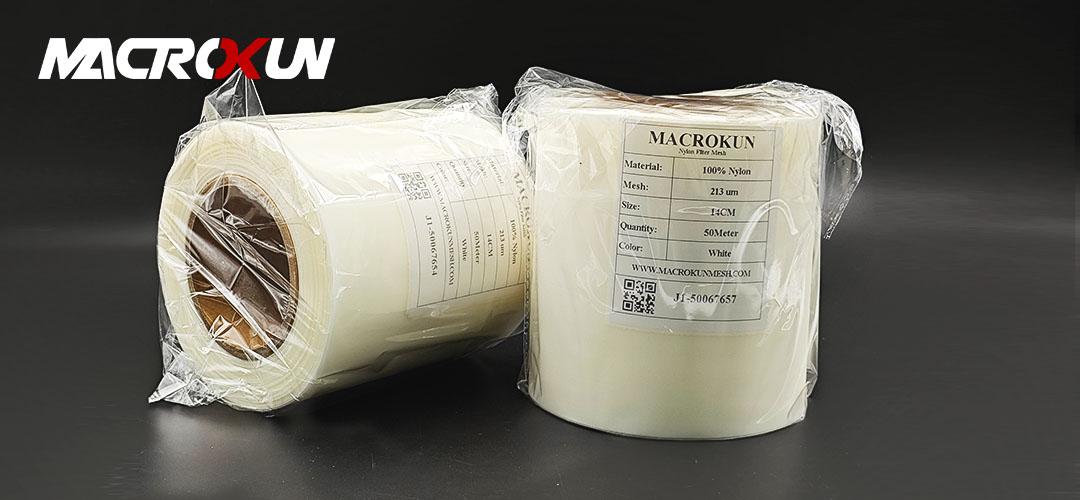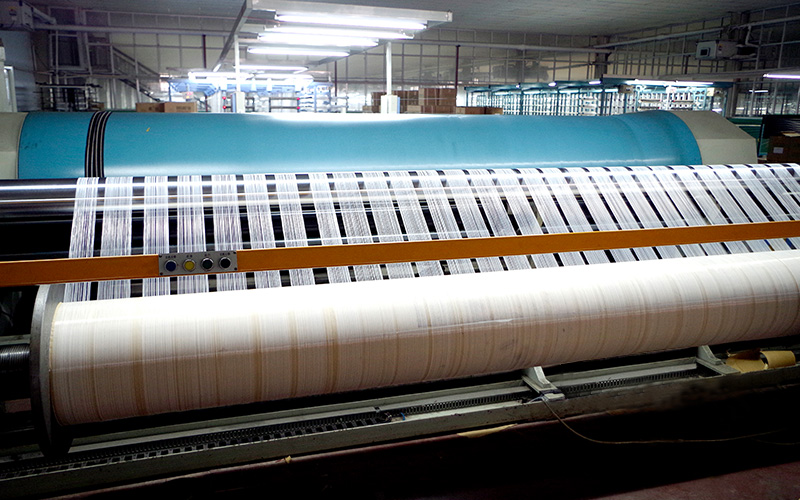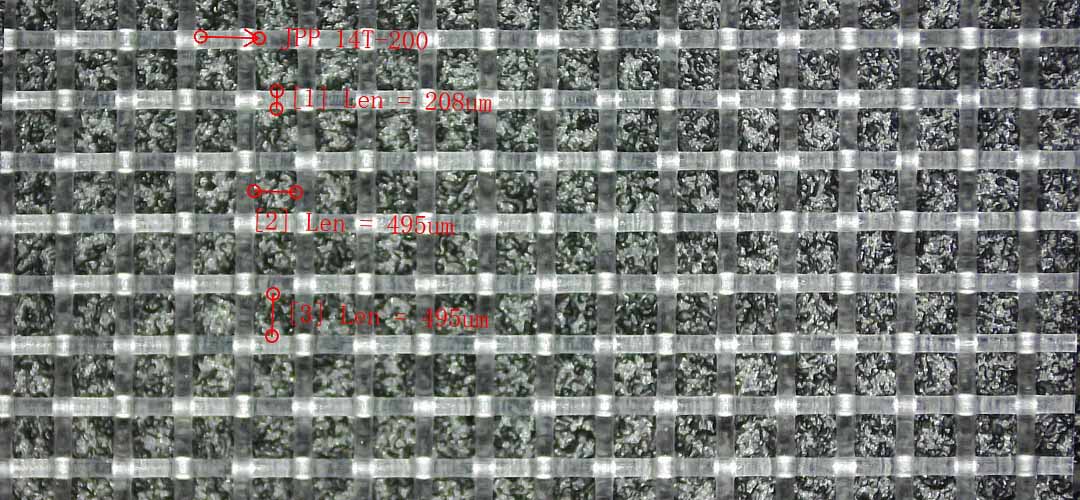Table of Contents
Introduction to Micron Filter Mesh types
Micron filter mesh types are an essential component in various industries, providing a crucial function in separating particles and impurities from liquids and gases. Understanding the different types of micron filter mesh available is essential to ensure that you select the perfect fit for your industry’s specific needs.
Micron filter mesh is a woven material made from synthetic fibers or metal wires, with precise openings that determine the size of particles that can pass through. The term “micron” refers to the size of these openings, with smaller micron sizes indicating finer filtration capabilities. Common micron sizes range from 5 microns to 1000 microns, with each size suitable for different applications.
When selecting a micron filter mesh type, it is essential to consider the specific requirements of your industry. For industries that require high levels of filtration, such as pharmaceuticals or food and beverage production, a finer micron size is typically necessary to ensure the removal of small particles and contaminants. On the other hand, industries that deal with larger particles, such as mining or wastewater treatment, may require a coarser micron size to allow for efficient filtration without clogging.
One of the most common types of micron filter mesh is stainless steel mesh, which offers excellent durability and resistance to corrosion. Stainless steel mesh is suitable for a wide range of applications, from industrial filtration to medical devices, due to its strength and longevity. Additionally, stainless steel mesh can be easily cleaned and reused, making it a cost-effective option for industries that require frequent filter changes.
Another popular micron filter mesh type is nylon mesh, which is known for its flexibility and chemical resistance. Nylon mesh is often used in industries that require fine filtration, such as pharmaceuticals and electronics manufacturing, due to its ability to capture small particles without compromising flow rates. Additionally, nylon mesh is lightweight and easy to handle, making it a convenient option for industries that require frequent filter replacements.
Polyester mesh is another common micron filter mesh type, known for its high tensile strength and resistance to abrasion. Polyester mesh is often used in industries that require a durable and long-lasting filtration solution, such as automotive manufacturing or water treatment plants. Additionally, polyester mesh is available in a wide range of micron sizes, making it suitable for various applications that require different levels of filtration.
In conclusion, understanding the different types of micron filter mesh available is essential to ensure that you select the perfect fit for your industry’s specific needs. Whether you require fine filtration for pharmaceuticals or coarse filtration for wastewater treatment, there is a micron filter mesh type that will meet your requirements. By considering factors such as material, micron size, and durability, you can choose a filter mesh that will provide efficient and reliable filtration for your industry.
Applications and Benefits of Micron Filter Mesh Types
Micron filter mesh types are an essential component in various industries, providing a crucial role in separating particles and ensuring the purity of liquids and gases. Understanding the different types of micron filter mesh available can help you choose the perfect fit for your industry’s specific needs.
One of the most common types of micron filter mesh is stainless steel mesh. This type of mesh is highly durable and resistant to corrosion, making it ideal for industries that require a high level of cleanliness and purity. Stainless steel mesh is also easy to clean and maintain, making it a cost-effective option for long-term use.

Another popular option is nylon mesh, which is known for its flexibility and versatility. Nylon mesh is lightweight and easy to handle, making it a popular choice for industries that require frequent changes or replacements of filter mesh. Additionally, nylon mesh is resistant to chemicals and abrasion, making it suitable for a wide range of applications.
Polyester mesh is another common type of micron filter mesh, known for its high strength and durability. Polyester mesh is resistant to chemicals and can withstand high temperatures, making it a popular choice for industries that require a high level of filtration efficiency. Additionally, polyester mesh is easy to clean and maintain, making it a cost-effective option for long-term use.
In addition to these common types of micron filter mesh, there are also specialty options available for industries with specific requirements. For example, PTFE mesh is known for its high chemical resistance and low friction properties, making it ideal for industries that require a high level of purity and cleanliness. PTFE mesh is also non-stick, making it easy to clean and maintain.

Understanding the benefits of each type of micron filter mesh can help you choose the perfect fit for your industry’s specific needs. Stainless steel mesh is ideal for industries that require a high level of cleanliness and durability, while nylon mesh is flexible and versatile, making it suitable for industries that require frequent changes or replacements of filter mesh. Polyester mesh is known for its high strength and durability, making it a popular choice for industries that require a high level of filtration efficiency.

In conclusion, micron filter mesh types play a crucial role in various industries, providing a vital function in separating particles and ensuring the purity of liquids and gases. By understanding the different types of micron filter mesh available, you can choose the perfect fit for your industry’s specific needs. Whether you require a highly durable and corrosion-resistant option like stainless steel mesh, a flexible and versatile option like nylon mesh, or a high-strength and chemical-resistant option like polyester mesh, there is a micron filter mesh type that is perfect for your industry.
Choosing the Right Micron Filter Mesh Type for Your Industry
When it comes to choosing the right micron filter mesh type for your industry, it is essential to understand the different options available and how they can best suit your specific needs. Micron filter mesh is a critical component in many industries, including pharmaceuticals, food and beverage, automotive, and more. The right filter mesh can make a significant difference in the quality and efficiency of your processes, so it is crucial to select the perfect fit for your industry.
One of the first things to consider when choosing a micron filter mesh type is the size of the particles you need to filter. Micron filter mesh is available in a wide range of sizes, from as small as 1 micron to as large as 500 microns. The size of the particles you need to filter will determine the mesh size that is most suitable for your application. For example, if you are filtering very fine particles, you will need a smaller mesh size, while larger particles will require a larger mesh size.
Another important factor to consider when choosing a micron filter mesh type is the material of the mesh. Micron filter mesh is typically made from materials such as stainless steel, nylon, or polyester. Each material has its own unique properties and advantages, so it is essential to choose the material that best suits your industry’s needs. For example, stainless steel mesh is durable and resistant to corrosion, making it an excellent choice for industries that require a high level of cleanliness and hygiene.
In addition to size and material, it is also crucial to consider the weave of the micron filter mesh. The weave of the mesh refers to the pattern in which the threads are interlaced, and different weaves can affect the flow rate and efficiency of the filter. Common weave patterns include plain weave, twill weave, and Dutch weave, each of which has its own unique characteristics and advantages. For example, Dutch weave mesh is known for its high strength and excellent filtration capabilities, making it an ideal choice for industries that require a high level of precision and efficiency.
When choosing a micron filter mesh type for your industry, it is essential to consider not only the size, material, and weave of the mesh but also the specific requirements of your application. Different industries have different needs when it comes to filtration, so it is crucial to choose a mesh type that can meet those requirements effectively. For example, industries that deal with hazardous chemicals may require a mesh that is resistant to corrosion and chemical damage, while industries that deal with food and beverages may require a mesh that is FDA-approved and safe for use with consumable products.
In conclusion, choosing the right micron filter mesh type for your industry is a critical decision that can have a significant impact on the quality and efficiency of your processes. By considering factors such as particle size, material, weave, and industry-specific requirements, you can select the perfect fit for your industry and ensure that your filtration needs are met effectively. With the right micron filter mesh type in place, you can improve the quality of your products, increase efficiency, and ensure the success of your business.






